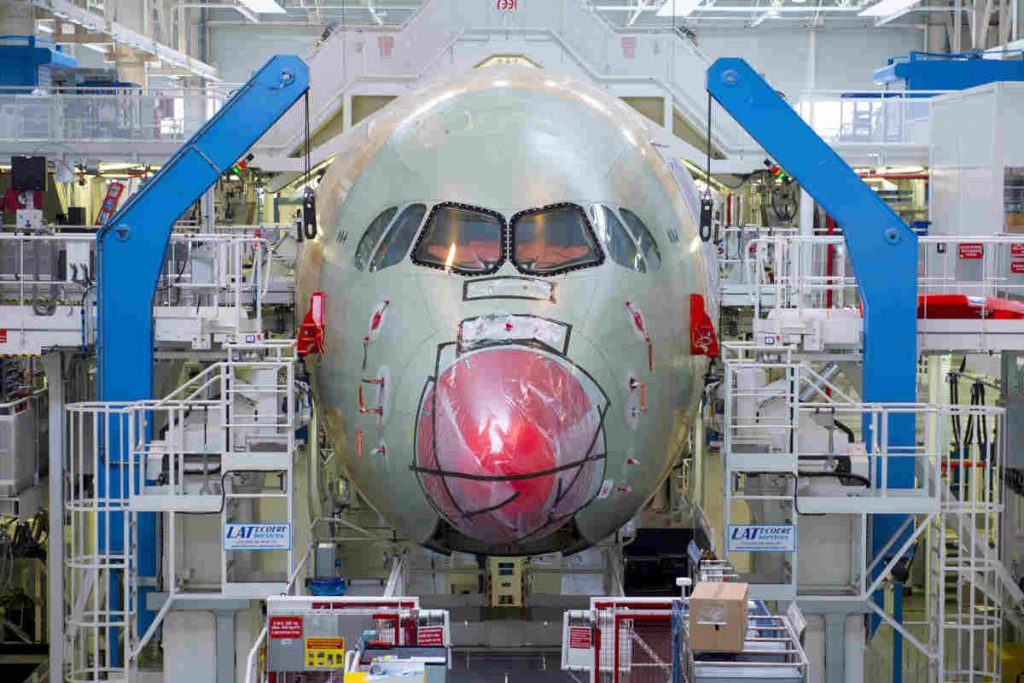
Features
Aircraft manufacturers
Airbus moves to end WTO dispute and U.S. tariffs
July 27, 2020 By Wings Staff
 The United States Trade Representative contended EU subsidies provided to Airbus for the launch of its A350 XWB and other aircraft adversely affected Boeing. (Photo: H. Gousse/master films/Airbus)
The United States Trade Representative contended EU subsidies provided to Airbus for the launch of its A350 XWB and other aircraft adversely affected Boeing. (Photo: H. Gousse/master films/Airbus) Airbus on July 24 announced it has agreed with the governments of France and Spain to make amendments to the A350 Repayable Launch Investment (RLI) contracts in what the aircraft maker describes as a final step to stop 16 years of litigation at the World Trade Organization, while also removing justifications for U.S. tariffs.
Back in 2004, the Office of the United States Trade Representative (USTR), which serves as the U.S. government’s agency to negotiate foreign trade agreements, brought a World Trade Organization (WTO) challenge about European Union subsidies provided to Airbus. The USTR noted how the WTO in 2011 ruled that the EU had provided Airbus with US$18 billion in subsidized financing from 1968 to 2006.
In April 2019, the USTR issued another statement surrounding the long-standing dispute about its intention to impose what it described as new countermeasures, tariffs, to these European Union subsidies. The tariffs were to be applied across a range of industries and products, but the USTR also zeroed in on aircraft production.
In its April 8, 2019, statement, the USTR used the term “launch aid” to describe what it – based on WTO findings – pegs as more than US$5 billion in new subsidized financing for the A350 XWB aircraft. The USTR stated that European Union subsidies were leveraged for Airbus to launch “every model of its large civil aircraft, which caused Boeing to lose sales of more than 300 aircraft and market share throughout the world.”
The USTR also pointed to what is classified by the WTO as an appellate report issued in May 2018 that found EU subsidies worth billions of dollars for twin-aisle aircraft. In this report, USTR states “launch aid” provided for the A350 XWB and A380 caused significant lost sales to Boeing 787 and 747 aircraft.
U.S. moves to impose tariffs on EU aircraft
In describing its new RLI agreements with the governments of France and Spain, Airbus states the tariffs imposed by the USTR are currently harming all targeted industry sectors, including U.S. airlines, and are adding to a very difficult environment as a consequence of the COVID-19 crisis. Airbus explains, that for this reason, it has decided to make a final step to remove the last contentious point and amend the French and Spanish contracts to what the WTO considers the appropriate interest rate and risk assessment benchmarks.
Airbus states the WTO has already ruled that RLI is a valid instrument for governments to partner with industry by sharing investment risks; and, that with this final move, Airbus considers itself in complete compliance with all WTO rulings.
“We have fully complied with all the WTO requirements. These additional amendments to the A350 RLIs demonstrate that Airbus has left no stone unturned to find a way towards a solution,” said Guillaume Faury, CEO, Airbus. “This is a clear signal of support to those who are suffering from the severe impact of the tariffs imposed by the USTR, especially at a time when industries are hard hit by the consequences of the COVID-19 crisis.”